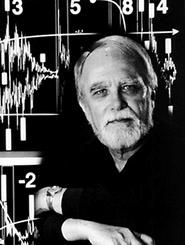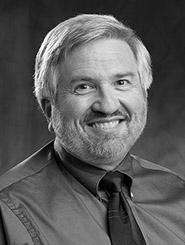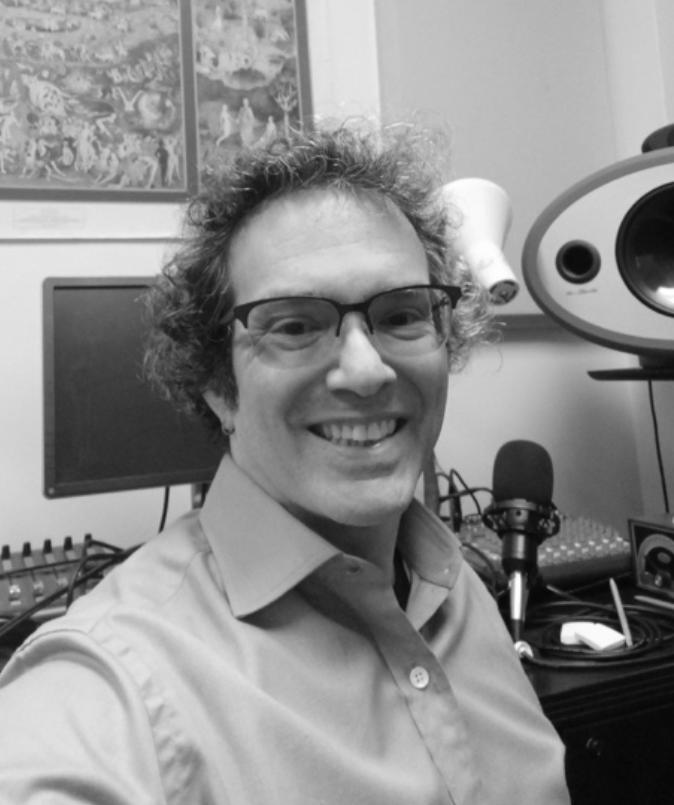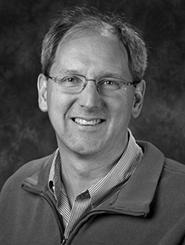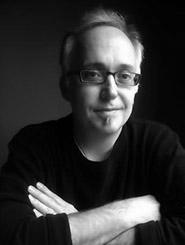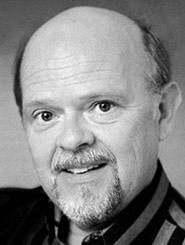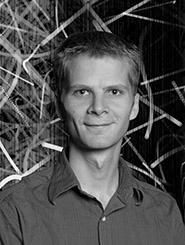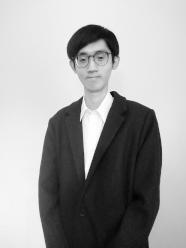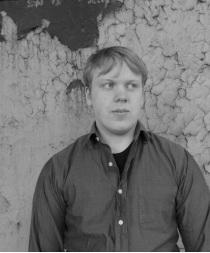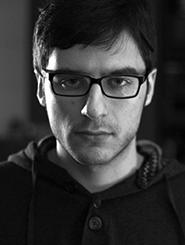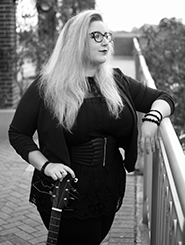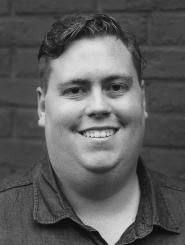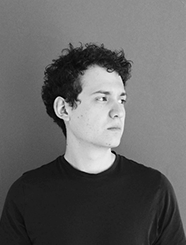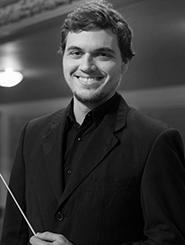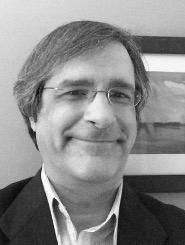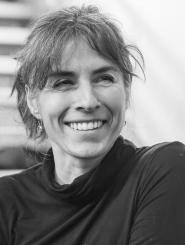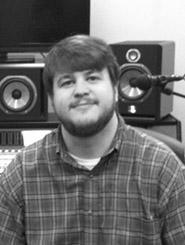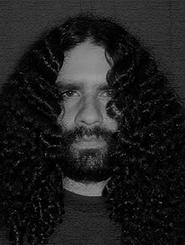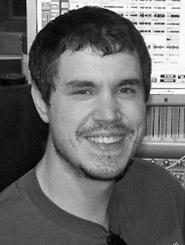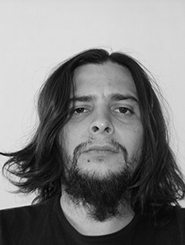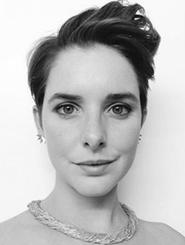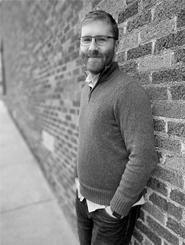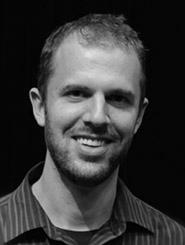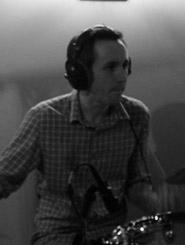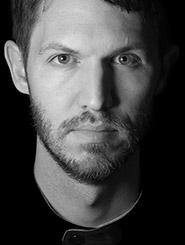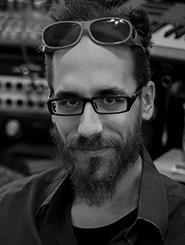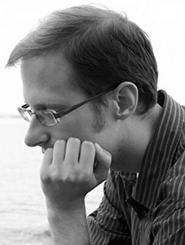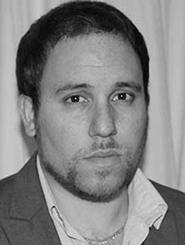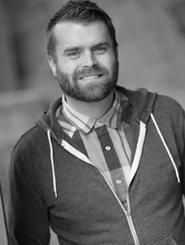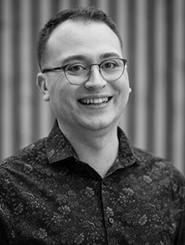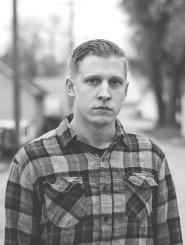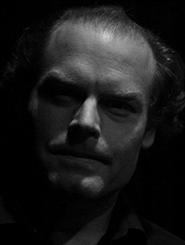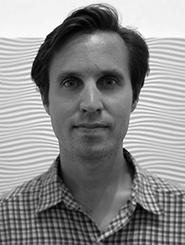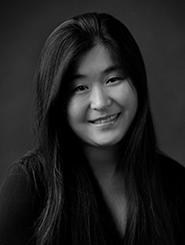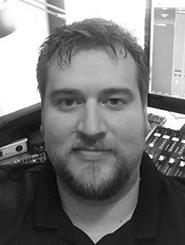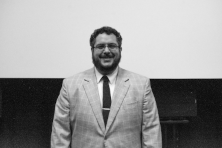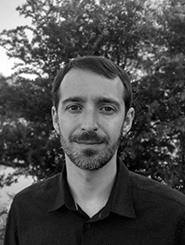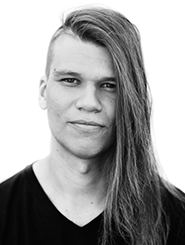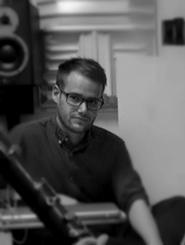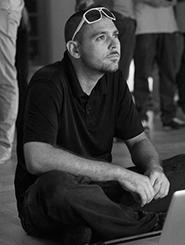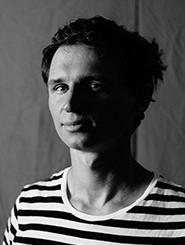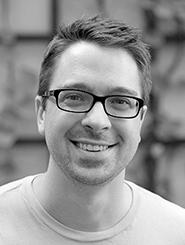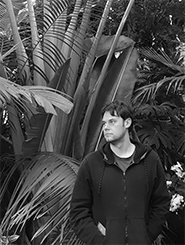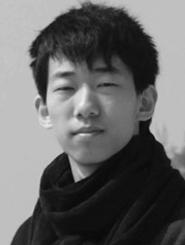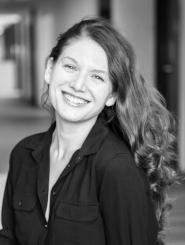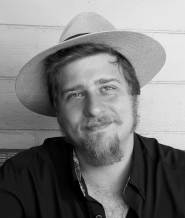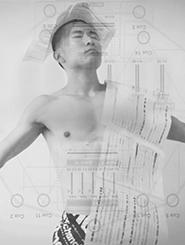CEMI People
CEMI Director
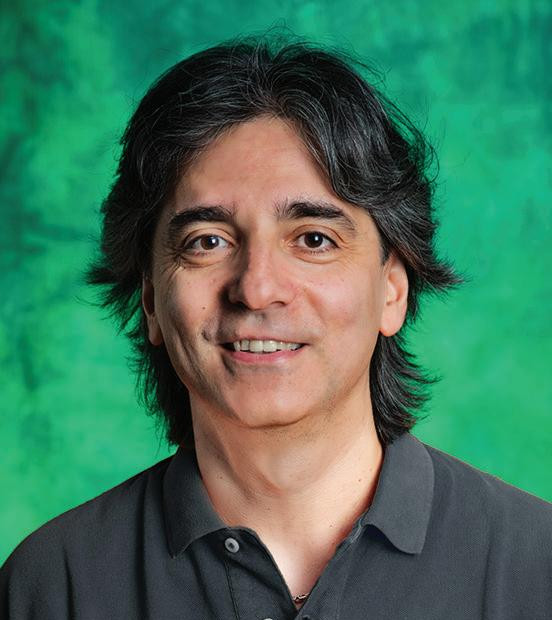
Panayiotis Kokoras
Kokoras is an internationally award-winning composer and computer music innovator, and currently Professor of composition and CEMI director (Center for Experimental Music and Intermedia) at the University of North Texas. Hailing from Greece, he underwent formal training in classical guitar and composition in Athens (Dip), Greece, and later in York, England (MA, PhD). He taught for many years at Aristotle University in Thessaloniki. Kokoras's sound compositions use sound as the only structural unit. His concept of "holophonic musical texture" describes his goal that each independent sound (phonos), contributes equally into the synthesis of the total (holos). In both instrumental and electroacoustic writing, his music calls upon a "virtuosity of sound," a hyper-idiomatic writing which emphasizes on the precise production of variable sound possibilities and the correct distinction between one timbre and another to convey the musical ideas and structure of the piece. His compositional oeuvre draws inspiration from his in-depth exploration of domains such as Music Information Retrieval compositional strategies, extended techniques, tactile sound, Instrumental Prosthetics, Robotics, and the intriguing relationship between sound and consciousness. Kokoras's works have received significant recognition, with commissions and fellowships from renowned institutions and festivals including the Guggenheim Foundation (USA), Fromm Music Foundation (Harvard), IRCAM (France), MATA (New York), Gaudeamus (Netherlands), ZKM (Germany), and IMEB (France), among others. His compositions have graced over 1000 performances across the globe, amassing an impressive array of 90 awards and distinctions in international competitions. His compositions have consistently been chosen by juries from over 300 international calls for music. He stands as a founding member of the Hellenic Electroacoustic Music Composers Association (HELMCA) and held positions including board member and president from 2004 to 2012. Presently, he assumes the role of Secretary of the International Confederation of Electroacoustic Music (ICEM). He also served as conference chair for the ICMC 2015 and SMC 2018 and regularly serves as jury member in composition competitions and conferences. For more information, please visit his official website: https://www.panayiotiskokoras.com
Staff
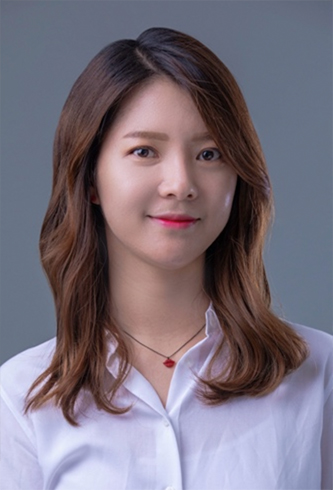
Insun Choi
Insun Choi is a composer, conductor, and piano accompanist from South Korea. She is currently pursuing a master’s degree in music composition with an emphasis on media composition at the University of North Texas. Her music works have recently been performed by professional ensembles including Fort Worth Symphony Orchestra and The Julius Quartet. She is interested in digital electronic music as well as acoustic and orchestral music and is studying how to blend samples of various distinctive timbres into one piece of music. She is writing and producing music for the concert hall, church, musical, animation, film, and television. She tries to convey various stories and emotions through her music and wishes that people will be comforted through her music.
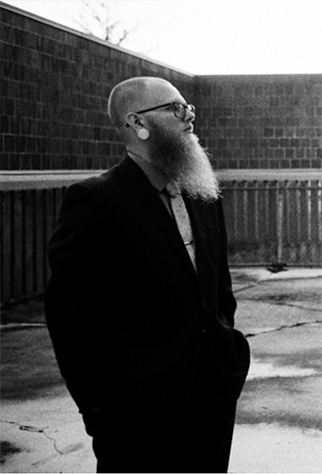
Benjamin Damann
Benjamin Damann is a composer, percussionist, and music technologist. His works — inspired by probability, indeterminacy, improvisation, and the timbral manipulation of acoustic instruments through physical preparation and electroacoustic augmentation — have been performed throughout the United States and Europe.
He is devoted to realizing electronic, experimental, and graphical works for percussion as well as programming software to aid in the performance of such works. Benjamin holds a BM in percussion performance with a concentration in composition from Eastern Illinois University, an MM in Composition from Bowling Green State University, and is currently pursuing his PhD from the University of North Texas.

Simon Kaplan
Simon Kaplan (b. 7 Feb. 1993 in Maisons-Laffitte, FR) is a French composer, researcher and pedagogue. He graduated from the Royal Flemish Conservatoire of Brussels (M.A. cum laude in composition, 2022) and the Royal Conservatoire of Mons (M.M. cum laude in compositional didactics, 2023), where he studied in the classes of Peter Swinnen and Claude Ledoux.
Kaplan's music includes solo and chamber pieces and has been premiered internationally by renowned performers, particularly on the European stage and in Japan.
In 2021, the young artist invented diahemitonicism, a quarter-tonal composition system which has governed his works ever since. His article on this system was published in Tempo in Oct. 2023.
The microtonalist is currently working as a teaching fellow at the University of North Texas, where he is pursuing a Ph.D. in composition. He regularly lectures on the design of microtonal composition systems.
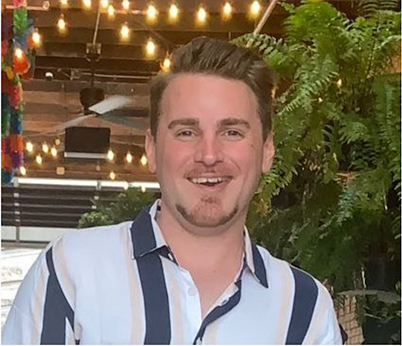
Reagan Maginn
Reagan Maginn is a Dallas/Fort Worth based concert and media composer whose become known for his keen ability to connect emotionally with audiences, allowing music to be a dwelling place for expression. Reagan writes with the conviction that awe-filled, beautiful music, and the arts in general, have transformative power to touch the hearts and minds of people. His musical language is elegant, with a wealth of fluidity and heart. He is influenced largely by composers of the Romantic period, the American Jazz tradition, and the power house film composers of Jerry Goldsmith and Alan Silvestri. Maginn has now been writing commercial music with brands across the US for over 5 years; writing for Change-Maker Award winning ad campaigns and film festival premieres.
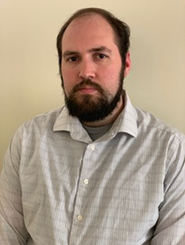
Patrick Reed
Patrick Reed is a native of Dallas Texas, as a composer and educator, he hopes to foster and teach an interest and love for contemporary music to people of all ages. His music style ranges from solo to large ensemble compositions, to works written for beginners and young band ensembles. His works have recently been performed at the International Computer Music Conference(ICMC), Electronic Music Midwest, New York City Electroacoustic Music Festival, SEAMUS, NSEME, and Society of Composers national and regional conferences.
Reed is currently pursuing a PhD. in music composition at the University of North Texas.
Reed earned his Master in Music in composition at Bowling Green State University, where he studied with Elainie Lillios Christopher Dietz, and Mikel Kuehn. He holds a Bachelor of Music in Composition and Music Education from Texas Tech University, where he studied composition with Peter Fischer and Mei-Fang Lin.
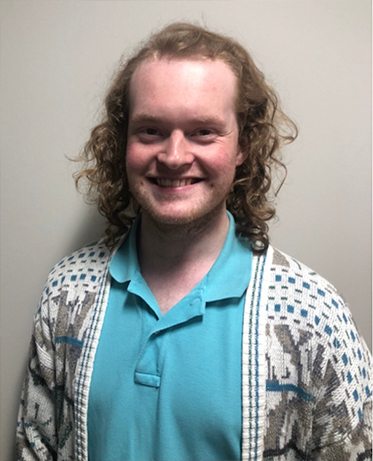
Connor Scroggins
Connor Scroggins is a composer who is currently seeking a PhD of Music Composition from University of North Texas. He recently completed a Master of Music from Bowling Green State University in 2022 and previously received a Bachelor of Music from Arkansas State University in 2020. He was a finalist for the 2023 ASCAP/SEAMUS Student Commission. At Arkansas State’s Create@State research symposium, he presented on musique concrète instrumentale and won awards for his presentations on spectralism and musical logic. His current research interests include phenomenology and acoustic ecology. His works have been read and performed by Robin Meiksins, Chiara Franceschini, Ensemble Suono Giallo, The Rhythm Method String Quartet, Hypercube, New Thread Quartet, Apply Triangle Trio, Parker String Quartet, Unheard-of//Ensemble, The ___ Experiment, and Transient Canvas. His music has been performed in the United States and Europe at ilSUONO, ICMC, NYCEMF, SEAMUS National Conference, SPLICE Institute, NSEME, and the Saarburg Music Festival. He has participated in masterclasses from Ann Cleare, Clara Iannotta, Jason Eckardt, Augusta Read Thomas, Mari Kimura, Greg Wilder, Marina Kifferstein, and Stephanie Lamprea. He currently studies with Panayiotis Kokoras and previously studied with Elainie Lillios, Timothy Crist, Drew Schnurr, Mikel Kuehn, Marco Buongiorno Nardelli, Christopher Dietz, Derek Jenkins, and Carrie Leigh Page.

Benjamin Shirey
Benjamin Shirey (was CEMI staff from 2013-2016 and is currently serving), a native Texas composer and artist, obtained his bachelor’s and master’s degrees at the University of North Texas under the mentorship of renowned composers like Jon Nelson, David Stout, Cindy McTee, Andrew May, and Panayiotis Kokoras.
His work, from experimental opera to film scores, delves deep into acoustic phenomenology, art teleology, artificial life, and immersive systems. His film contributions, such as “Hustler of Providence” and “The Great Hanging,” have earned significant accolades.
Beyond composition, he is passionate about entrepreneurship and instrument building. Now, Shirey is back at the University of North Texas, pursuing a Ph.D. in Composition, hoping to continue exploring the ever-expanding horizons of music and art.
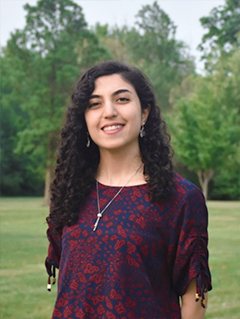
Shahrzad Talebi
Shahrzad Talebi is a composer, sound artist, and educator from Tehran, Iran. In her work, timbre is the main focus as a means for exploring new soundscapes, color, time, space, and concepts. Her work has been recognized and performed at the Electronic Music Midwest festival, Splice Festival, Taproot New Music Festival, Toledo Symphony Orchestra reading session, BGSU MicroOpera, Fifteen Minutes-of-Fame (Drew Hosler), the electroacoustic music competition “Reza Korourian Awards”; and has been performed by Unheard-of//Ensemble as part of the Klingler ElectroAcoustic Residency, and The _____ Experiment Ensemble.
She holds a bachelor’s degree in composition from Tehran University of Art and a master of music from Bowling Green State University, where she studied with Dr. Elainie Lillios, Dr. Mikel Kuehn, and Dr. Christopher Dietz. Currently, she is pursuing a Ph.D. in composition at the University of North Texas as a teaching fellow.
Faculty and Staff Affiliates
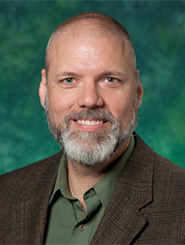
Joseph Klein
Joseph Klein holds degrees in composition from Indiana University (DM, 1991), University of California, San Diego (MA, 1986), and California State Polytechnic University, Pomona (BA, 1984). His composition teachers have included Harvey Sollberger, Claude Baker, Robert Erickson, and Roger Reynolds. He is currently Distinguished Professor at the University of North Texas College of Music, where he has served as Chair of Composition Studies since 1999. Klein’s compositions for various media have been performed and broadcast internationally, and he has been a featured guest composer at academic institutions, performance venues, conferences, and music festivals throughout North America, Europe, and Asia. His recorded works are available on the Innova, Centaur, Crystal, and Mark labels.
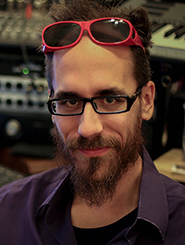
Stephen Lucas
Stephen Lucas is a composer, video artist, and technical developer and functions as the Lead Creative Programmer for the iARTA research network and College of Music. He is best known for his strikingly abstract computer audio/video works; he also writes many works involving live performers. His compositions have been performed throughout the United States but he strives to embrace online audiences. His other interests include electronics, cybernetics, and metaphysics.

Andrew May
Composer, violinist, and computer musician Andrew May was CEMI director from 2005-2016, 2019-2020, and 2022-2023. He is best known for his interactive computer music; he also writes many purely acoustic works. His compositions have been performed in at least a dozen European and Asian countries and throughout the United States. He has performed internationally as a violinist, conductor, and improviser.
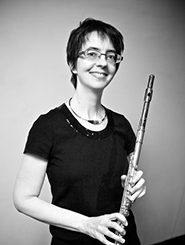
Elizabeth McNutt
Flutist Elizabeth McNutt is a leading interpreter of contemporary repertoire, and electroacoustic music in particular. She has premiered over 150 new works and performed widely in Europe, Asia, and the U.S. Her solo CD pipe wrench, on the Electronic Music Foundation Media label, has been described as "astounding" (Flute Talk), "high-octane" (Musicworks), and "a delightful listen" (SEAMUS Newsletter). Her other recordings are on the CRI and SEAMUS labels. Her writing has been published in Organized Sound, Music Theory Online, and Flutist Quarterly. McNutt holds a DMA in contemporary music performance from the UC San Diego.McNutt is on the faculty of the University of North Texas, where she teaches flute and directs the new music ensemble Nova.
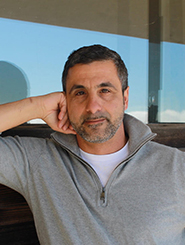
Marco Buongiorno Nardelli
Marco Buongiorno Nardelli is University Distinguished Research Professor at the University of North Texas in the Departments of Physics and Chemistry. Composer, flutist and computational materials physicist, he is a member of iARTA, the Initiative for Advanced Research in Technology and the Arts and of CEMI, the Center for Experimental Music and Intermedia. He is a Fellow of the American Physical Society and of the Institute of Physics, and a Parma Recordings artist. His scientific research is at the forefront of computational materials and high-performance simulations, with particular emphasis on theoretical developments of ab initio methods for electronic structure of solid state systems, high-throughput computational techniques and computational materials design with a strong vision for sustainable development of scientific software. His Art-Science practice orbits around the duality of data sonification: translation of complex events in sonic material, and object for musical poiesis. Data are raw elements for a compositional process that transcends the materiality of the original information in a post-sonification praxis: the data stream is open for elaboration as principal element of a data-driven compositional environment. He uses these data as a sculptor would use clay (the raw data) to mold any object or create any design (the music).
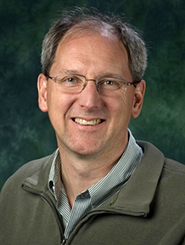
Jon Christopher Nelson
Jon Christopher Nelson (b. 1960) is currently a Professor at the University of North Texas where he serves as an associate of CEMI (Center for Experimental Music and Intermedia) and also the Associate Dean of Operations. Nelson’s electroacoustic music compositions have been performed widely throughout the United States, Europe, Asia, and Latin America. He has been honored with numerous awards including fellowships from the Guggenheim Foundation, the National Endowment for the Arts, and the Fulbright Commission. He is the recipient of Luigi Russolo and Bourges Prizes and was recently awarded the Bourges Euphonies d'Or prize. In addition to his electro-acoustic works, Nelson has composed a variety of acoustic compositions that have been performed by ensembles such as the New World Symphony, the Memphis Symphony, the Brazos Valley Symphony Orchestra, ALEA III, and others. He has composed in residence at Sweden's national Electronic Music Studios and at IMEB in Bourges, France. His works can be heard on the Bourges, Russolo Pratella, Innova, CDCM, NEUMA, ICMC, and SEAMUS labels.
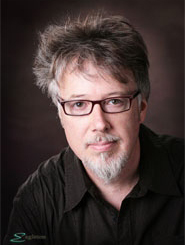
David Stout
David Stout is a performance director, installation artist and live cinema performer exploring the capabilities of new media to forge collaborative communities, synthesize evolving ecological systems and compose dramatic interactive visual-music works on a symphonic scale. He is a professor in the iARTA research network, where he works with students and faculty from across the arts, sciences and engineering.

Ruth West
Ruth West is an artist-scientist – a creative catalyst. She envisions a future in which art + science integration opens new portals of imagination, invention, knowledge, and communication across cultures to create breakthrough solutions for our most pressing global problems. Ruth directs the xREZ Art + Science Lab and is an associate professor at the University of North Texas cross-appointed in the College of Visual Art and Design (New Media Art & Design), College of Information (Information Sciences), College of Engineering (Computer Science) and College of Arts and Sciences (Biological Sciences). Utilizing emerging technologies her work builds resonant connections between the arts and sciences to create new ways of seeing and knowing. Bridging high-dimensional data and metadata, information visualization and sonificaiton, virtual reality, augmented and/or mixed reality, 3D fabrication, and social and mobile participatory media with domains such as urban ecology, neuroscience, genomics, astronomy, fiber arts and digital remix culture, Ruth explores avenues for achieving works with multiple entry points that can exist concurrently as aesthetic experiences, artistic practice or cultural interventions and serve as the basis for artistically-impelled scientific inquiry and tools. This work results in new knowledge and insight, technology R&D, novel artworks, large-scale public engagement and entertainment experiences, cross-disciplinary educational and research opportunities and industry-academic-community partnerships. She has authored over 70+ peer-reviewed exhibitions, publications, conference presentations and public talks, and has received several million dollars in grants and corporate sponsorship. Her work has been presented in venues including: Los Angeles Municipal Art Gallery, FILE 09 Sao Paulo, SIGGRAPH, WIRED Magazine’s NextFest, Perot Museum of Nature and Science, IEEE Visualization, SPIE/IS&T ERVR, Leonardo and the Proceedings of the National Academy of Sciences.
Affiliated Organizations

ICEM
The International Confederation of Electroacoustic Music (ICEM) founded in 1981 in Bourges, France. The Center for Experimental Music and Intermedia (CEMI) joined the confederation and became an Organization/ Institution Member since 2006. In 2014, CEMI hosted the CIME/ICEM Annual Conference and Festival. The objectives of the Confederation is to promote at an international level the various aspects of electroacoustic music : - by providing opportunities for the creation of new works - by encouraging: production, creation and research, distribution of compositions, pedagogy, meetings of its professionals (composers, researchers, performers, and teachers), dissemination and communication of knowledge and electroacoustic techniques. - by organizing collaborations with national bodies, international organizations and various professional areas concerning the above-mentioned objectives. ICEM became the 18th International Organization Member (I.O.M) of the International Music Council /IMC-Unesco in 1983. ICEM currently has 15 National Federations consisting of Argentina, Belgium, Chile, China, Cuba, Finland, Great Britain, Greece, Hungary, Mexico, Poland, Portugal, Spain, Switzerland, and Ukraine. As well as, 10 Organization/ Institution Members from Colombia, France, Iran, Italy, Mexico, Netherlands, Russia, Spain. Switzerland, USA.
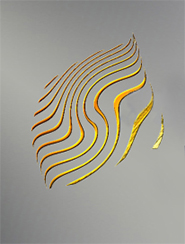
The Foundation Destellos
The Foundation Destellos is created in 2007 in Mar del Plata, Argentine, by initiative of Dr Elsa Justel. It is a private and independent organization with juridical status. Conducted by an Administration board and a relevant team of Argentine and foreign artists and searchers. After an intensive trajectory as composer and video artist, Dr Justel assumes the responsibility of this Foundation on behalf of the artistic creation, the sciences and technologies of art, in order to stimulate and sustain all those initiatives tending to the development of culture and human knowledge. The Foundation has as priority purpose to hold the new generations of artists, searchers and technicians whose objectives are oriented in this sense.
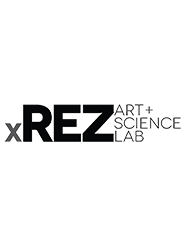
xREZ Art + Science Lab
xREZ Art + Science Lab is a unique blending of creative studio and research lab. We forge productive paths that harness the unique creative forces found only at the intersection of the arts, sciences and humanities to open new portals of imagination, knowledge and communication. Our visionary team is composed of students, faculty and collaborators working in computer science, new media arts, anthropology, behavioral psychology, photography, music, journalism, art education, information science, hospitality management, urban ecology, geospatial analysis, art education, political science, history, and biomedicine. We create breakthrough solutions to problems that require collaboration across disciplines by developing emerging technologies, new knowledge, public engagement, and cross-sector partnerships.





